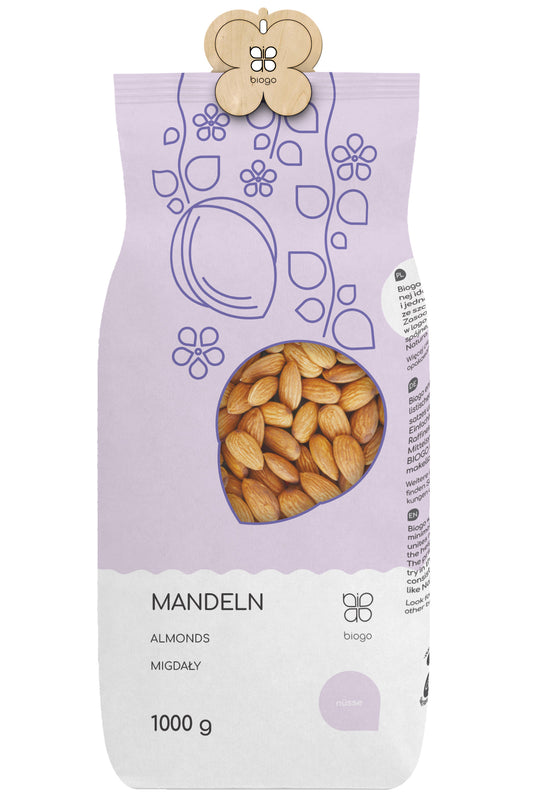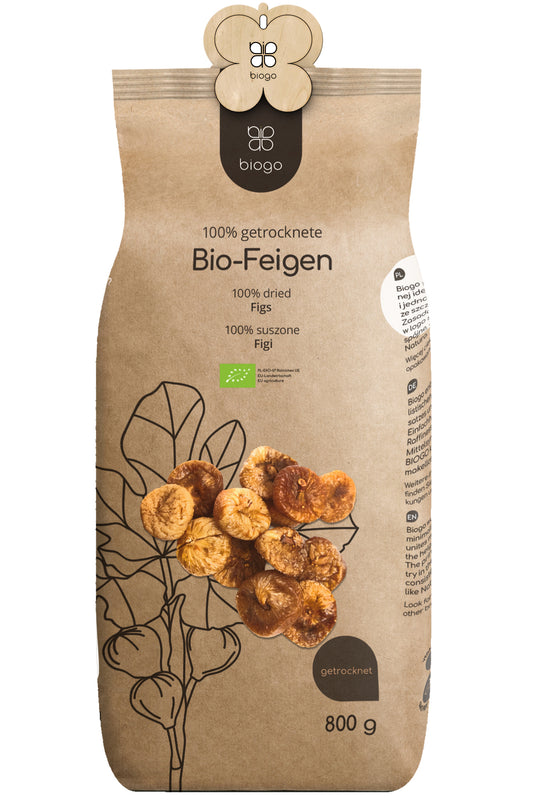Perché vale la pena utilizzare impacchi di cera, thermos e sacchetti riutilizzabili?
- Perché i bicchieri di carta non sono ecologici?
- Sacchetti di plastica monouso, borse per la spesa, pellicola di alluminio e pellicola trasparente – un carico per l'ambiente
- Teli cerati, bicchieri termici e sacchetti riutilizzabili come alternativa a carta monouso, bicchieri di plastica e pellicola
I problemi ambientali vengono affrontati regolarmente da decenni. Dibattiti sull'ecologia, foto sconvolgenti di spiagge e oceani inquinati con montagne di plastica creano un'impressione deprimente, eppure ci risulta ancora molto facile scegliere prodotti in confezioni di plastica. Le attività umane e i loro impatti sull'ambiente sono cresciuti più che mai nell'ultimo mezzo secolo. Gli imballaggi onnipresenti in plastica, pellicola e polistirolo sono oggi indispensabili sugli scaffali dei negozi. Beviamo acqua e succhi da bottiglie di plastica e caffè da asporto in bicchieri di plastica. Pane, frutta, verdura, riso, pasta e semolino sono confezionati in sacchetti di plastica. E sebbene sempre più polacchi dichiarino di separare regolarmente e accuratamente i rifiuti, e la raccolta differenziata sia obbligatoria per legge con multe in caso di inosservanza, ogni anno tonnellate di rifiuti di plastica finiscono ancora nelle discariche. Secondo i dati Eurostat, il cittadino europeo medio produce circa 35 kg di rifiuti di plastica all'anno.
Perché i bicchieri di carta non sono ecologici?
Il caffè da asporto in bicchieri monouso è molto comodo da ordinare - un bicchiere del genere è leggero, non serve lavarlo, si può smaltire rapidamente gettandolo in un contenitore per la carta e si ha la coscienza a posto. Purtroppo si scopre che solo lo 0,25% dei bicchieri di carta per caffè viene riciclato. Il resto finisce nelle discariche. La sostenibilità ambientale dei bicchieri di carta monouso è ingannevole. Non tutti lo sanno, ma questi bicchieri "di carta" non sono fatti solo di cellulosa biodegradabile. Sono impregnati di plastica per non assorbire acqua. In realtà non è facile riciclarli successivamente. C'è un solo posto nel Regno Unito che può riciclare questo tipo di bicchieri.
Sacchetti di plastica monouso, borse per la spesa, pellicola di alluminio e pellicola trasparente – un carico per l'ambiente
Oggigiorno fare la spesa in un supermercato medio senza usare la plastica è quasi un miracolo. Formaggi, affettati, carne, pomodori, cetrioli, broccoli, pane, yogurt, latte, noci, prodotti a base di cereali, dolciumi sono confezionati in plastica, frutta, verdura e pane? Spesso li prendiamo istintivamente, senza pensarci, perché è più comodo per noi. Purtroppo la "durata" di un tale "passaggio" usa e getta è in media di 20 minuti: dopo che la spesa è stata portata a casa e disimballata, finisce nella spazzatura e poi in discarica, dove si decompone per diverse decine di anni, contaminando il suolo e le falde acquifere con microplastica. Lo stesso vale per la pellicola trasparente di plastica, che gettiamo via dopo un solo utilizzo. Anche la carta stagnola è molto popolare, a volte la usiamo più volte al giorno: è facile strapparla, avvolgere panini, coprire una ciotola o una pentola con il cibo, poi arrotolarla e gettarla via. Se rimane in discarica, purtroppo impiega diverse decine fino a cento anni per degradarsi.
Teli di cera d'api, Thermobecher e sacchetti riutilizzabili come alternativa a carta monouso, bicchieri di plastica e pellicola
Ridurre la produzione di rifiuti di plastica nel proprio ambiente è uno dei modi più semplici per influenzare la propria tutela ambientale e la nostra salute – è noto che meno la natura intorno a noi è inquinata, meglio è per noi e per i nostri figli. Anche se a prima vista può sembrare impossibile lavorare comodamente in cucina senza pellicola trasparente di plastica o alluminio e fare la spesa senza sacchetti monouso di plastica, le soluzioni sono in realtà molto semplici e allo stesso tempo molto comode. Eccole:
- Wax Wrap - è un prodotto Zero Waste, un imballaggio alimentare ecologico, realizzato con un pezzo di cotone impregnato di cera d'api naturale. Ha proprietà antibatteriche ed è riutilizzabile, può essere lavato sotto acqua corrente. Le pellicole di cera sono ideali per confezionare e conservare alimenti, ad esempio: barrette di cioccolato, verdure e frutta, panini, pane, dolci, frutta secca, carne e formaggio. Puoi avvolgerle intorno a ciotole, pentole e barattoli con alimenti conservati in frigorifero. Possono anche essere usate come tappetino per arrotolare. Gli imballaggi di cera non dovrebbero essere usati a contatto diretto con carne cruda e pesce crudo, ma puoi mettere la carne o il pesce in una ciotola e poi coprire la ciotola. Gli imballaggi di cera sono biodegradabili - si decompongono e non rilasciano sostanze dannose per il nostro pianeta.
- Thermobecher - la produzione di nuovi bicchieri usa e getta, che usiamo alle stazioni di servizio durante il lavoro o in città, richiede l'abbattimento di circa 20 milioni di alberi all'anno. La soluzione più ecologica è quindi l'uso quotidiano di una borraccia termica o di un thermobecher. Proprio questi ultimi sono pratici, maneggevoli e si adattano a una borsa o a uno zaino. Mantengono una temperatura costante della bevanda e si dimostrano particolarmente utili nei giorni freddi e gelidi. Per mantenere la temperatura ancora più a lungo, li sciacquiamo brevemente con acqua bollente prima di riempirli con tè o caffè. Poi il suo interno si riscalda,
- borse e sacchetti riutilizzabili - la propria borsa per la spesa è la base di uno stile di vita ecologico. Quando cerchiamo consigli su come ridurre la produzione di plastica nel nostro ambiente immediato, di solito si parla prima di rinunciare ai sacchetti di plastica monouso. Per non dimenticarlo, vale la pena averlo sempre con sé nella borsa, nello zaino o nel bagagliaio. Interessante notare che non possiamo mettere la spesa solo in una borsa di cotone, lino o tela dopo aver lasciato la cassa, ma anche in piccoli sacchetti; ad esempio, possiamo anche confezionare pane, frutta e verdura, noci o prodotti gastronomici, come canederli o pasta, che in alcuni negozi possono essere acquistati a peso.
L'applicazione di questi pochi, discreti cambiamenti nella vita può ridurre significativamente la quantità di rifiuti che produciamo. In effetti, non richiedono grandi sacrifici da parte nostra, e già dopo pochi giorni ci abitueremo a portare il caffè da casa, a non mettere la spesa in una busta di plastica ma nella nostra borsa, e a non dover pensare a comprare un nuovo rotolo di pellicola trasparente. Questi cambiamenti non solo beneficiano il nostro pianeta, ma anche il nostro portafoglio.
LA SCELTA DELL'EDITORE
Datteri secchi 1 kg BIOGO
- £4.00
£5.00- £4.00
- Prezzo unitario
- / per
Mandorle 1 kg BIOGO
- £11.00
£13.00- £11.00
- Prezzo unitario
- / per
Semi di girasole pelati 1 kg BIOGO
- £3.00
£4.00- £3.00
- Prezzo unitario
- / per
Mango essiccato bio 400 g BIOGO
- £10.00
- £10.00
- Prezzo unitario
- / per
Morbide More Bianche Secche 500 g BIOGO
- £6.00
£7.00- £6.00
- Prezzo unitario
- / per
Popcorn (chicchi di mais) bio 1 kg BIOGO
- £6.00
- £6.00
- Prezzo unitario
- / per
Curcuma macinata biologica 500 g BIOGO
- £6.00
- £6.00
- Prezzo unitario
- / per
Semi di cardo mariano 1 kg BIOGO
- £4.00
- £4.00
- Prezzo unitario
- / per
Fichi secchi biologici 800 g BIOGO
- £27.00
- £27.00
- Prezzo unitario
- / per
Borse #changezbiogo Cotone v.2
- £3.00
- £3.00
- Prezzo unitario
- / per






































































































































